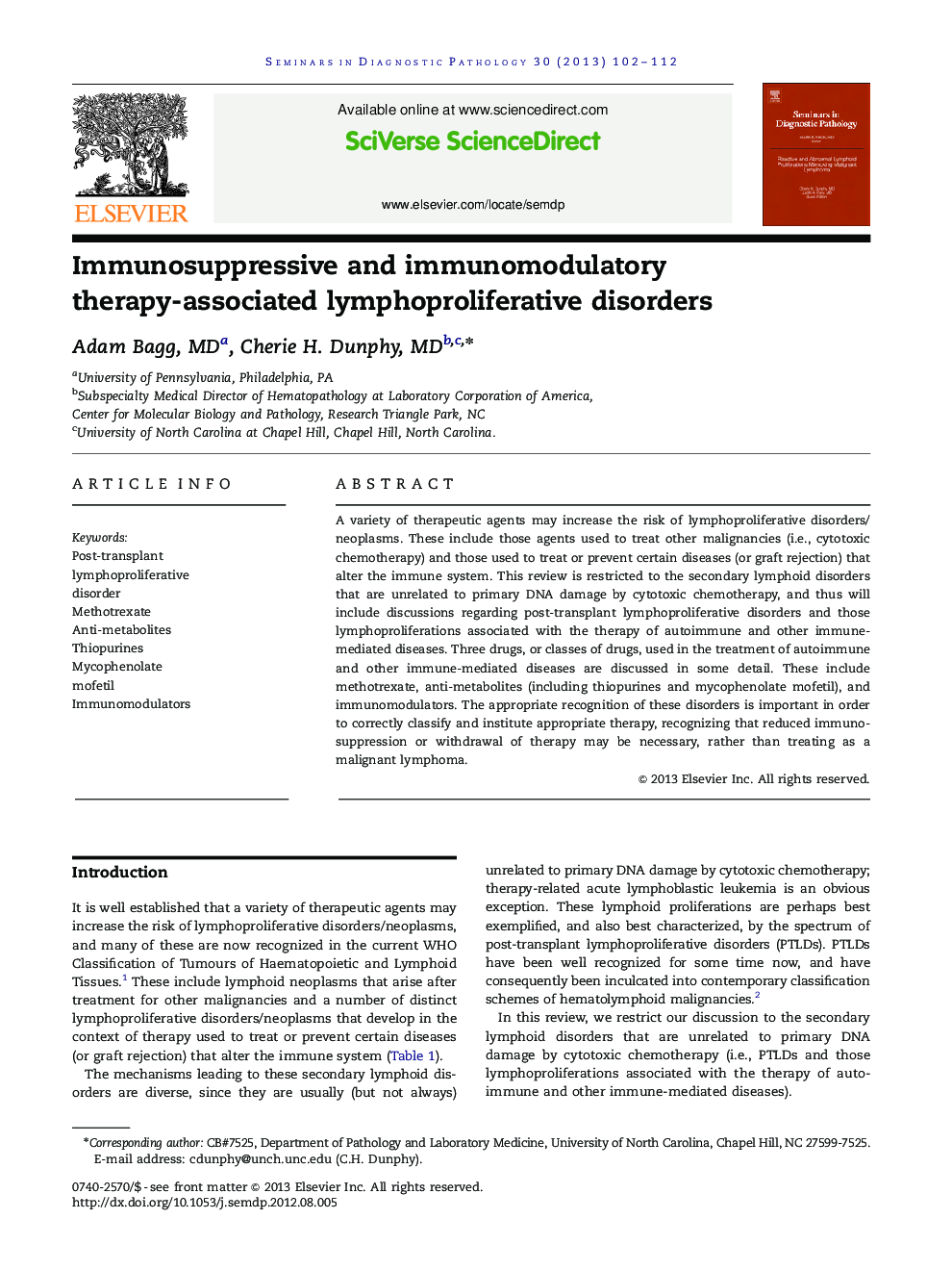| Article ID | Journal | Published Year | Pages | File Type |
|---|---|---|---|---|
| 4138508 | Seminars in Diagnostic Pathology | 2013 | 11 Pages |
A variety of therapeutic agents may increase the risk of lymphoproliferative disorders/neoplasms. These include those agents used to treat other malignancies (i.e., cytotoxic chemotherapy) and those used to treat or prevent certain diseases (or graft rejection) that alter the immune system. This review is restricted to the secondary lymphoid disorders that are unrelated to primary DNA damage by cytotoxic chemotherapy, and thus will include discussions regarding post-transplant lymphoproliferative disorders and those lymphoproliferations associated with the therapy of autoimmune and other immune-mediated diseases. Three drugs, or classes of drugs, used in the treatment of autoimmune and other immune-mediated diseases are discussed in some detail. These include methotrexate, anti-metabolites (including thiopurines and mycophenolate mofetil), and immunomodulators. The appropriate recognition of these disorders is important in order to correctly classify and institute appropriate therapy, recognizing that reduced immunosuppression or withdrawal of therapy may be necessary, rather than treating as a malignant lymphoma.
